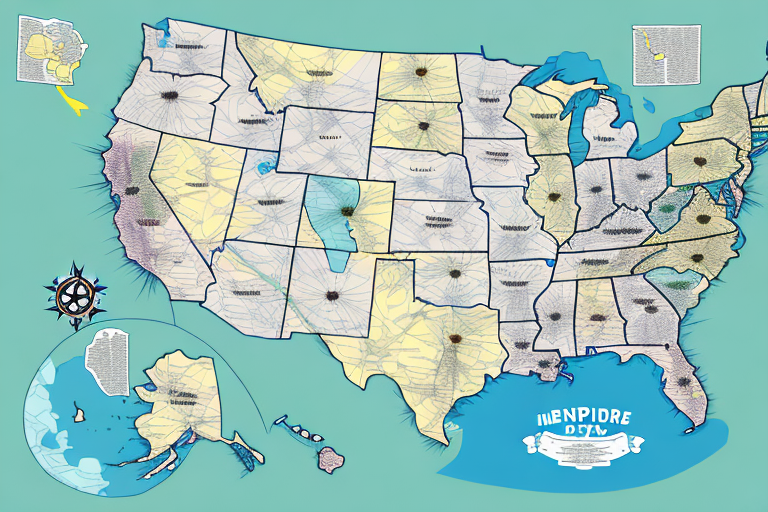Maximizing Your Profits with Independent Courier Routes
In today's fast-paced world, the demand for reliable and efficient courier services continues to surge. The exponential growth of e-commerce and online shopping has opened up lucrative opportunities for independent couriers. Whether you're looking to start your own business or supplement your income, independent courier routes offer a promising avenue. This comprehensive guide delves into the intricacies of the independent courier industry, providing you with actionable strategies to create a profitable and successful courier route.
Understanding the Independent Courier Industry
Industry Overview
The independent courier industry, often referred to as "freight forwarding," involves the transportation of goods from one location to another for individuals or businesses. Independent couriers typically operate on a local or regional scale, specializing in the delivery of smaller, time-sensitive packages. Services often include same-day or next-day deliveries, catering to urgent needs for documents, parcels, and perishable items like food and medical supplies.
Market Trends and Technology
The industry is highly competitive and fragmented, with numerous small operators vying for business. Technological advancements play a pivotal role in shaping the market, with innovations such as AI-driven logistics, tracking software, and mobile applications enhancing operational efficiency. According to a report by IBISWorld, the courier services market is expected to grow by X% annually over the next five years, driven by increasing e-commerce sales and consumer preference for quick deliveries.
Pros and Cons of Operating an Independent Courier Route
Advantages
- Flexible Hours: Operate on a schedule that suits your lifestyle.
- Client Selection: Choose clients and contracts that align with your business goals.
- Control Over Workload: Manage the volume and type of deliveries you undertake.
- Growing Demand: Rising e-commerce and on-demand services increase opportunities.
Disadvantages
- High Operating Costs: Expenses for fuel, vehicle maintenance, and insurance can be significant.
- Specialized Equipment: Necessitates investment in reliable delivery vehicles and tracking systems.
- Liability Risks: Responsibility for lost or damaged goods can lead to financial repercussions.
- Job Insecurity: Income may fluctuate based on market demand and client retention.
Developing a Profitable Business Plan
Market Analysis and Financial Projections
A robust business plan begins with a thorough market analysis. Identify your target market, assess the competition, and understand the demand dynamics. Utilize resources from the Small Business Administration to structure your financial projections, including startup costs, operating expenses, and revenue forecasts. According to Statista, the global courier services revenue reached $X billion in 2023, underscoring the industry's growth potential.
Technology and Equipment Needs
Investing in the right technology and equipment is crucial for operational efficiency. Essential tools include reliable vehicles, GPS tracking systems, and Customer Relationship Management (CRM) software. Advanced route optimization software can significantly reduce delivery times and fuel costs. Additionally, secure packaging solutions and tamper-proof containers enhance the safety of transported goods.
Securing and Managing Courier Contracts
Strategies for Finding Contracts
Building strong relationships with local businesses is a key strategy for securing contracts. Reach out to retailers, restaurants, and medical facilities that require regular delivery services. Utilize online platforms such as Upwork and Freelancer to find freelance courier opportunities. Networking events and industry conferences also present valuable opportunities to connect with potential clients.
Effective Marketing Tactics
Marketing your courier services effectively can attract a steady stream of clients. Create a professional website highlighting your services, delivery speeds, and pricing structures. Leverage social media platforms like LinkedIn, Facebook, and Instagram to reach a broader audience. Implement search engine optimization (SEO) strategies to increase your online visibility. According to HubSpot, businesses that prioritize blogging are 13 times more likely to see a positive ROI.
Building and Retaining a Strong Customer Base
Client Retention Strategies
Retaining clients is essential for long-term success. Offer exceptional customer service by ensuring timely deliveries and maintaining open lines of communication. Implement feedback systems to address client concerns promptly. Loyalty programs and referral incentives can also enhance client retention rates.
Attracting New Clients
To attract new clients, consider offering introductory discounts or promotions for first-time users. Showcasing your reliability and efficiency through testimonials and case studies can build trust with prospective clients. Additionally, publishing informative content related to logistics and courier services can position you as an industry expert, attracting clients seeking knowledgeable partners.
Managing Costs, Enhancing Efficiency, and Leveraging Technology
Cost Management Techniques
Effective cost management involves monitoring and controlling operational expenses. Negotiate favorable terms with suppliers, optimize fuel consumption, and implement preventive maintenance schedules for your vehicles. Utilizing accounting software can help track expenses and identify areas for cost reduction.
Optimizing Operations
Route optimization is critical for reducing delivery times and fuel costs. Tools like GeoPointe and Route4Me offer advanced route planning features. Additionally, adopting automated scheduling systems can streamline operations and minimize human error.
Technology Tools
Leveraging technology enhances overall efficiency and customer satisfaction. Implement GPS tracking for real-time updates and to monitor delivery progress. Utilize CRM systems to manage client relationships and personalize services. Automated billing and invoicing systems can expedite payment processes and improve cash flow management.
Legal and Regulatory Considerations
Compliance and Licensing
Operating an independent courier business requires adherence to various legal and regulatory standards. Register your business with the appropriate local and state authorities, and obtain necessary licenses and permits. Compliance with transportation regulations, such as weight restrictions and safety standards, is mandatory.
Liability and Insurance
Understanding your liability is crucial to mitigating risks associated with lost or damaged goods. Invest in comprehensive insurance policies that cover vehicle damage, cargo loss, and liability claims. Consulting with a legal expert can help ensure that your business is adequately protected against potential lawsuits and claims.
Scaling Your Courier Business and Future Growth
Expanding Service Offerings
Scaling your business involves expanding your service offerings to meet diverse client needs. Consider incorporating specialized delivery services such as same-day delivery, express shipping, or handling of fragile and high-value items. Diversifying your services can attract a broader client base and increase revenue streams.
Geographic Expansion
Expanding into new geographic areas can significantly boost your business's growth potential. Conduct market research to identify regions with high demand for courier services and low competition. Establishing a presence in multiple locations can enhance your brand's reach and operational capacity.
Investing in Advanced Technology
As your business grows, investing in advanced technology becomes essential for maintaining efficiency. Implementing enterprise-level route optimization, CRM systems, and advanced tracking solutions can support larger operational scales. Additionally, exploring automation and AI-driven tools can further enhance operational capabilities.
Future Trends in the Courier Industry
Automation and Artificial Intelligence
The integration of automation and AI is set to revolutionize the courier industry. Automated sorting systems, drone deliveries, and AI-driven route optimization are becoming increasingly prevalent. These technologies promise to enhance efficiency, reduce costs, and improve delivery accuracy.
Sustainability and Green Logistics
Environmental sustainability is gaining prominence in logistics. Consumers and businesses alike are prioritizing eco-friendly delivery options. Investing in electric vehicles, optimizing routes to reduce carbon emissions, and adopting sustainable packaging materials can position your business as a responsible and forward-thinking operator.
Growth of E-Commerce and On-Demand Services
The continued growth of e-commerce and the rise of on-demand services will drive demand for independent courier services. The increasing reliance on quick and reliable delivery options presents ongoing opportunities for couriers to expand their services and cater to evolving consumer preferences.
Conclusion
The independent courier industry offers vast opportunities for entrepreneurs willing to navigate its challenges. By developing a solid business plan, securing and managing contracts effectively, building a loyal customer base, and leveraging technology, you can create a profitable and sustainable courier business. Staying informed about industry trends and adapting to changing market conditions will ensure long-term success and profitability in this dynamic sector.








